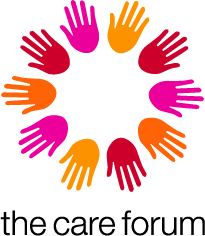Good Neighbours
The Key Differences
Introduction
Local Friends was set up to address the increasing problem of social isolation. The initial plan was Building Community through pastoral care. Good Neighbours is our response to the Covid-19 pandemic.
This page aims to describe not only the key differences between these two schemes, but also how they support each other.
Details
The main difference between the two schemes is in the names: Building Community seeks to build a stronger, healthier and happier community by developing and strengthening relationships through pastoral care. Good Neighbours seeks to enable people to be good neighbours to each other through regular communication and practical support. Each approach supports the other.
People are referred to the Building Community scheme by a professional who knows them, has checked that they want to take part in the scheme, and believes they are suitable. The volunteers have been vouched for by a trusted local group, which says they are people who are trusted and have some skill and experience in providing pastoral care. In normal times, they seek to meet their contact regularly, with the aim of getting to know one another and building a strong enough relationship so that the volunteer can help them get to know other people and groups in the area, and bring other people into the friendshp.
People can refer themselves to the Good Neighbours scheme, and also volunteer to help. The volunteers sign up through Can Do Bristol and provide their own reference. The requests vary much more – the aim may be much more specific ('I need someone to pick up a prescription on Wednesday') or much more general ('I need more human contact'), and is set by the person asking for help. When the request is for friendship, there is no up-front commitment to seek stronger relationships with the wider community; but, in the current pandemic, such a commitment is not practical anyway.
Regular contact through the Good Neighbours scheme may develop in the longer run into the community integration which is the aim of the Building Community scheme, but this will happen only if the two people involved want it to.
Isolated people often feel that they have nothing to offer, and they are dependent upon others to reach out and connect with them. Our conviction is that anybody who can talk to someone else is capable of offering the friendship and emotonal support which is a vital human need.
Whoever you are, you have something valuable to offer: yourself. Nobody else in the whole world has your history, your knowledge, skills and experiences, or can offer your perspective on life. You may not think this is valuable, but it is.
In practice, the two schemes essentially overlap at present, and it is often not clear which scheme is in view when a contact request is made. This is not a problem, as we seek to respond to the needs, whatever they are, and we have to be flexible in loving and responding to each person with their changing circumstances and interests. Every relationship is a journey, and we never know where it will end up.



